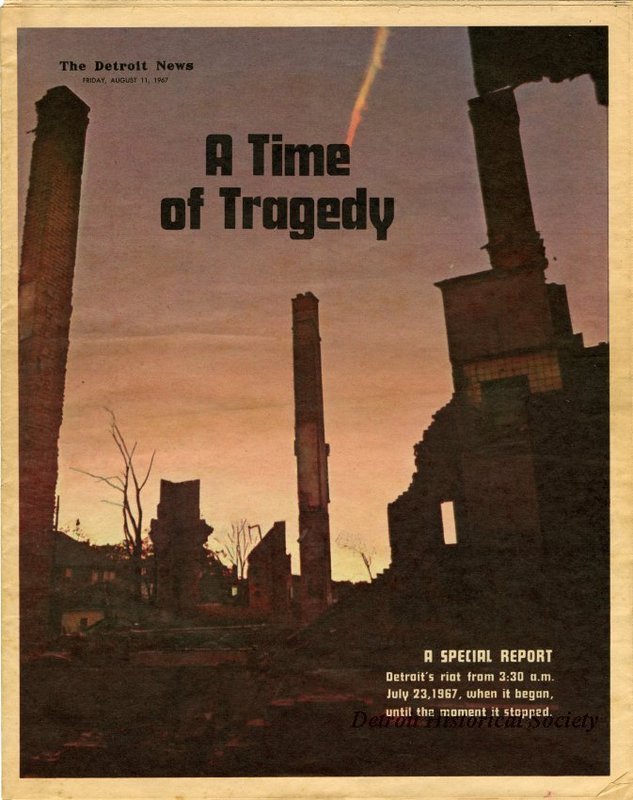Detroit During the 1960s
In Detroit, Michigan, in the late 1960s, signs of societal unrest were prevalent. During the summer of 1967 in particular, some of the largest race-related uprisings in the history of the nation took place in Detroit. Some of the commonly agreed upon contributing factors included economic strife, since the previously booming local automobile industry was moving out of the city center, as well as social tensions related to the “white flight” that followed the significant influx of African Americans who relocated to the area from the South over the preceding decades (starting around 1910 and continuing over the next several decades).
In an effort to reach beyond the ways in which dominant media was telling the stories behind racial tensions in Detroit and other parts of the country during the time period, Hartford Smith Jr. paid attention to these social, cultural, and historical factors in Seeds of Discontent. One of the ways that his efforts to incorporate this background is evident in within the interview questions and conversations he had with a range of different folks across the entire radio series.
A link to a full episode of Seeds of Discontent where Smith interviews Detroit residents about racial relations and the status of African Americans in Detroit over the past several decades.
Throughout Seeds of Discontent, Hartford Smith Jr. asks interviewees to reflect on their perceptions of the nationwide unrest of the time. In several of the episodes of the program, Smith builds out and tells the more specific story of Detroit and its present challenges by filling in the details of its history using first-person perspectives. To achieve his goal of centering the points of view of the people living and working in the city, he spoke with several older African American men who, at the time of the interviews, had lived and worked in Detroit for decades--many since the Great Migration. In speaking with the men over the course of episodes six, seven, and eight, Smith interviews them about a range of topics: reasons for their relocations to Detroit, their experiences with and perceptions of the local police force, race relations in Detroit compared with the southern United States (where several of the men moved from), and their opinions around why unrest and violence had taken place in recent decades. You can listen to one of the episodes at the linked item to the left.
This is a white paper written chiefly by Hartford Smith Jr. that reports on the status of juvenile delinquency in Detroit. In the document, Smith attends to the delinquency itself as well as the role of the media in framing the issue.
The white paper highlights the disconnect between the ways in which the legacy media reports on issues and the ways in which the issues themselves are actually unfolding in the lives of the people being talked about in the press.
Another form that Hartford Smith Jr. used to illuminate the reasons for unrest in Detroit during the late 1960s was his social work practice in the community itself, as well as his associated research efforts. In 1969, he completed a white paper on the status of juvenile delinquency in Detroit, drawing attention not only to factors related to the disruptive activities of the local youth, but also to background information about how media framing contributed to increased frustration and tension between relevant citizen groups. In particular, he argues that the majority of local media outlets have "confused the public and public officials to such an extent that the media must be considered a part of the problem." This is of special concern, according to the report, because the actual full truth of the problems is being obscured amidst political rhetoric that builds from the mediated telling of events. These concerns give insight into Smith's motivations in creating Seeds of Discontent in the first place. To learn more, you can flip through his report in full in the hyperlinked item to the right.
